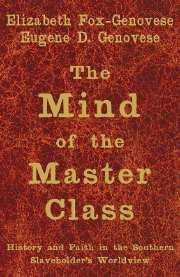Book contents
- Frontmatter
- Contents
- Preface
- List of Abbreviations
- Prologue
- PART ONE CRADLED IN THE STORMS OF REVOLUTION
- PART TWO THE INESCAPABLE PAST
- PART THREE ANCIENT LEGACIES, MEDIEVAL SENSIBILITY, MODERN MEN
- PART FOUR A CHRISTIAN PEOPLE DEFEND THE FAITH
- PART FIVE AT THE RUBICON
- Epilogue: King Solomon's Dilemma
- Supplementary References
- Index
Prologue
Published online by Cambridge University Press: 05 June 2012
- Frontmatter
- Contents
- Preface
- List of Abbreviations
- Prologue
- PART ONE CRADLED IN THE STORMS OF REVOLUTION
- PART TWO THE INESCAPABLE PAST
- PART THREE ANCIENT LEGACIES, MEDIEVAL SENSIBILITY, MODERN MEN
- PART FOUR A CHRISTIAN PEOPLE DEFEND THE FAITH
- PART FIVE AT THE RUBICON
- Epilogue: King Solomon's Dilemma
- Supplementary References
- Index
Summary
Wherever the main purpose of speech is flattery, there the word becomes corrupted and necessarily so. And instead of genuine communication, there will exist something for which domination is too benign a term; more appropriately we should speak of tyranny, of despotism.
–Josef PieperThis book is about white Southerners, and it is not about their “whiteness” – whatever that term may mean. It explores the ways in which they reflected on the world they lived in and on the bearing of history and Christian faith on their lives as masters in a slaveholding society. We take the ground that the Lower South and large parts of the Upper constituted not merely a society that accepted slavery as part of its social order but a genuine slave society – that is, a society based upon slave labor. Accordingly, we strive to avoid two errors: the one that has these white Southerners with nothing much on their minds except slavery, the other that denies the pervasive influence of slavery on their widespread interests. We recognize that slaveholders, big and small, generally concentrated their thoughts on religion or politics or literature or mundane matters without fretting over the implications for their lives as slaveholders, and certainly without thinking that they had to defend their ownership of slaves at every turn. But we insist that, whether readily apparent or not, the master-slave relation permeated the lives and thought of all who lived in the society it dominated.
Most of those who figure most prominently in these pages owned slaves, some in large numbers; many more had a direct or indirect interest in slaveholding through family connections or professional and business arrangements.
- Type
- Chapter
- Information
- The Mind of the Master ClassHistory and Faith in the Southern Slaveholders' Worldview, pp. 1 - 8Publisher: Cambridge University PressPrint publication year: 2005



